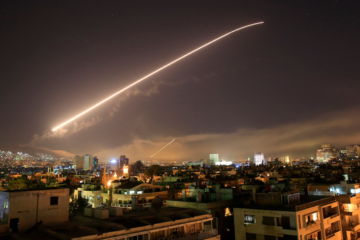Islam phobia in the World

Islamophobia is a term used to describe irrational hostility, fear, or hatred of Islam, Muslims, and Islamic culture, and active discrimination against these groups or individuals within them. Today, Islam phobia in Europe manifests itself through individual attitudes and behaviors, and the policies and practices of organizations and institutions.
Examples that vary across countries and time include the following: Physical or verbal attacks on property, places of worship, and people especially those who display a visible manifestation of their religious identities such as women wearing the hijab or niqab Verbal or online threats of violence, vilification, and abuse. Policies or legislation that indirectly target or disproportionately affect Muslims, and unduly restricts their freedom of religion, such as bans on wearing visible religious and cultural symbols, laws against facial concealment, and bans on building mosques with minarets. Discrimination in education, employment, housing, or access to goods and services.
Ethnic and religious profiling and police abuse, including some provisions of counterterrorism policing Public pronouncements by some journalists and politicians—across the whole political spectrum—that stigmatize Muslims as a group and disregard their positive contributions to the communities and countries in which they live. Wherever you are, there is probably a local Muslim community and a Muslim community that may increasingly feel that it is isolated and fearful. Establishing links with local Muslim communities is something that I believe Quakers in are particular are adept at doing and should be encouraged to do.
In fact, the anti-Muslim feeling was sporadic and lacked a global dimension until recently. Despite having been classified by colonial governments in religious terms, the immigrants who came to European countries after independence neither asserted their religious identities nor experienced discrimination based on it. In the United Kingdom, Hindu, Muslim and Sikh migrants from India, Pakistan, or Bangladesh rarely defined themselves by religion in public life and were seen by the government as well as anti-immigrant movements in racial or national terms.
For Europe, North America, and Australia, the chief destinations for those leaving Asia and Africa starting in the 1950s, Islam did not become a political issue until the cold war ended. Islam impinged upon the west in events such as the Iranian revolution of 1979, but it was the mobilization 10 years later against Salman Rushdie’s novel The Satanic Verses that established its global credentials. Starting in the UK, the protests over Rushdie’s novel moved on to India, Pakistan, and thence to the rest of the world. Mobilizing Muslims without ideological or institutional connections, the protests spread through television but were made possible by the new global arena brought to light with the cold war’s end. Emerging from the Soviet Union’s collapse, this was an arena defined by global communications and supply chains tethered to the uninterrupted march of capitalism. No longer divided into rival hemispheres by the two superpowers and their allies, the global arena had been emptied of its political character, and so was free to be occupied by cultural and civilizational disputes.
Here anti-Muslim violence emerges from the globalization of older conflicts. In India, domestic narratives about Hindus and Muslims as brothers who betray each other but can always reconcile are being replaced by new stories about alien and permanent enemies. This may not alter the violence deployed against Muslims, but it buries even the myth of coexistence in some imagined future.
As its influence wanes, in other words, Europe offers the global arena a history with which to imagine a politics for the future. Recent examples of Islam phobia exist within several countries. In late 2009, the largest party in the Swiss parliament put to referendum a ban on minaret construction. The government opposed the ban, citing harm to the country’s image – and particularly Muslims’ views of Switzerland. Nearly 60% of Swiss voters and 22 out of 26 voting districts voted in favor of the ban, leading to cries of Islamophobia by leaders in countries such as Pakistan and organizations such as the United Nations.
There is a need for the high collaboration of Muslim leaders to collaborate and condemn the actions against the Muslims in the west. There is also a need to bring the soft image of Islam in front of the world and Muslims should not support radical and fundamentals.
Stay tuned to Baaghi TV for more. Download our app for the latest news, updates & interesting content!









